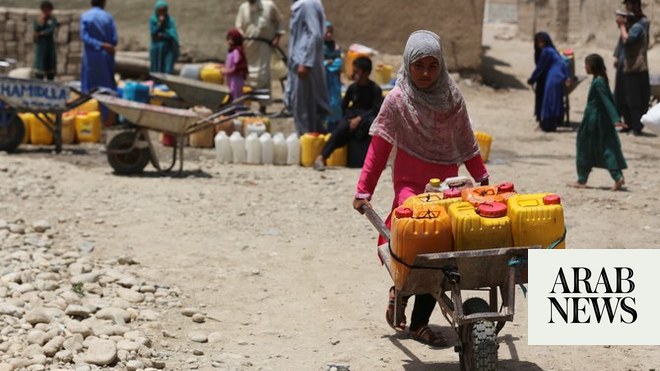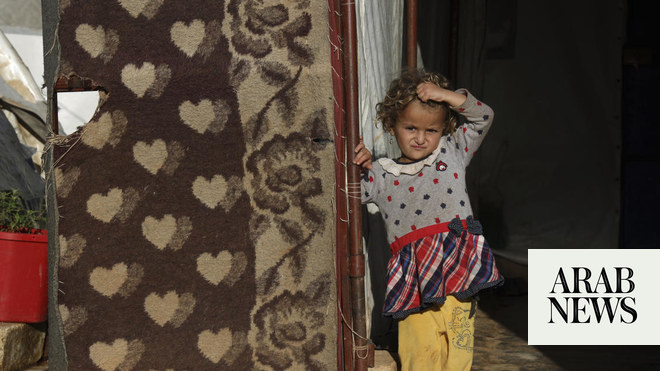
“A situation that creates desperation usually results in a poorer security situation,” charity tells Arab News
Britain plans real-term cut of around £5bn to aid spending in 2021-2022
LONDON: Aid charities have warned of rising destitution, child labor and early marriages, as well as declining security, if planned cuts to the UK’s foreign aid budget are implemented.
Last week, Britain announced that it would reduce its foreign aid commitment for the coming year from 0.7 percent of gross national income to 0.5 percent — representing a real-term reduction of around £5 billion ($6.975 billion) in spending.
Hundreds of charities have warned that the cuts would deliver a major blow to the world’s most marginalized people, many of whom are struggling to survive in dire humanitarian situations in the Middle East.
Charles Lawley, head of communications and advocacy at aid charity Syria Relief, told Arab News that even in the most optimistic scenario, his organization expects to see an increase in suffering among Syrians in the country as well as those who fled to neighboring Lebanon.
“The aid cuts will mean an 80 percent cut to WASH (Water, Sanitation and Hygiene) projects. Not only have 14.6 million Syrians had their access to clean water impacted by the conflict, but 7.6 million are in acute need of WASH humanitarian interventions,” he said.
“As impoverishment in Syria grows, with 90 percent of people now living below the poverty line, and the pandemic meaning that it’s more important than ever for everyone to have access to water, now is the time for the UK government to invest more into WASH projects in Syria, not slash its funding.”
The cuts, Lawley said, are likely to have far-reaching consequences, and could even impact British security.
“It’s likely that the cuts will mean a rise in poverty, a rise in negative coping mechanisms such as selling assets, child labor and early marriage. The most vulnerable in Syrian society will be exposed to even greater risk,” he added.
“A situation that creates desperation usually results in a poorer security situation. People could very well look for income through groups that do pose a threat to UK interests.”
Rami Shamma, operations director at World Vision, told Sky News that the daily mantra of people living in Lebanon is: “Let’s see what surprises we have today, and which part of our lives will be destroyed.”
She said Lebanon is enduring four simultaneous crises: Economic collapse, the Syrian refugee crisis, COVID-19, and the impact of last year’s Beirut explosion.
“UK aid has helped fund part of these projects working on child protection, education and cash for impoverished families,” she added.
“In the face of these desperate times, families are turning to desperate measures, of which children often suffer the worst.
“In Lebanon, 90 percent of households survive on less than the equivalent of £5 a day. Because of this, removing children from school, child labor and even child marriage have become coping mechanisms for survival.
“People are even turning to robbery just so they can feed their families. Without foreign aid, this will only continue to get worse, and the impact will be on all the programs that this aid is currently contributing to.
“To get things into perspective, the cut in funding of £500,000 will leave 10,000 families without food for a whole month.”
A Foreign, Commonwealth & Development Office (FCDO) spokesperson said: “The UK remains a world leader in international development, not only through the impact of these financial allocations but also through the creation of the FCDO, integrating diplomacy and development to deliver greater impact.
“In 2020 we were the third biggest aid donor globally, spending £14.5 billion. We will still spend more than £10 billion this year to fight poverty, tackle climate change and improve global health.”












